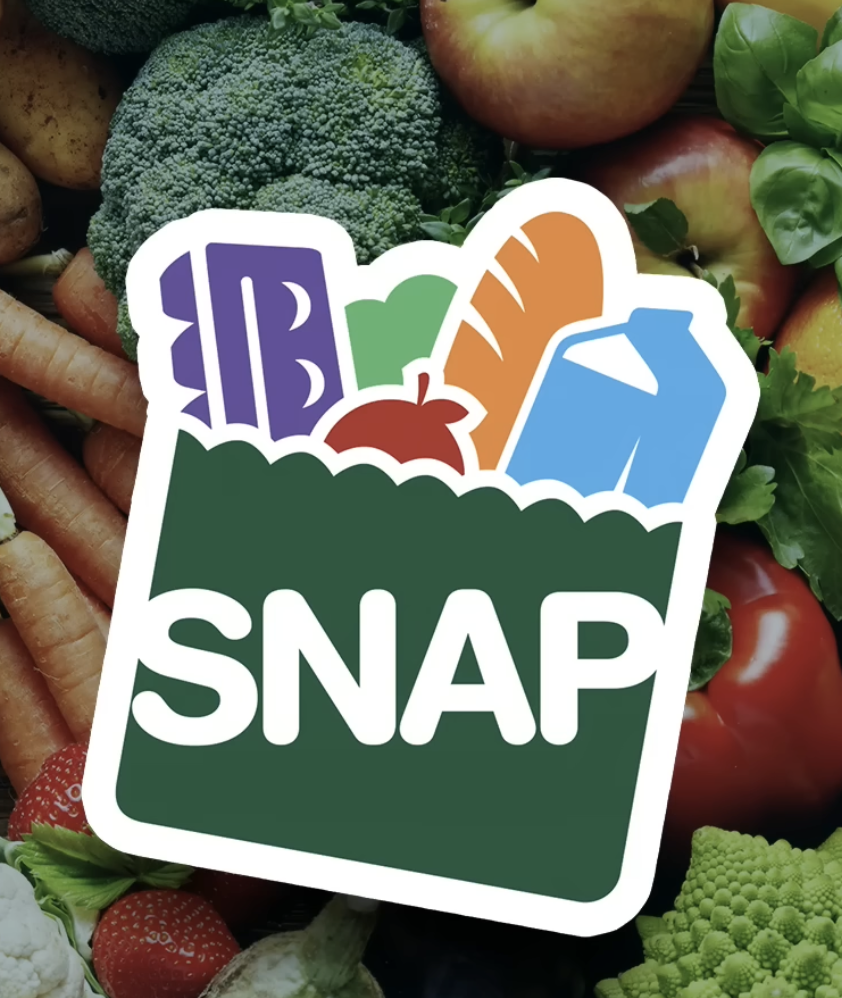
If you rely on SNAP benefits to help put food on the table, you may have seen recent headlines raising concerns about possible payment delays this fall. With a federal government shutdown ongoing and a key October 27 deadline approaching, some states are warning that November SNAP payments could be affected.
These developments have understandably raised questions for the millions of older adults and families who count on these programs. While the situation is still evolving, there are a few important updates you should know about—and steps you can take to stay informed and prepared.
At The GrayVine, we’re committed to helping you make sense of these issues clearly and calmly. Here's what’s happening, what it may mean for you, and where to turn for updates or support.
Also read: Government shutdown impacts Social Security offices nationwide—what beneficiaries need to know
What’s going on with SNAP?
The Supplemental Nutrition Assistance Program (SNAP), still often called "food stamps," helps more than 42 million Americans each month.
Funded by the USDA’s Food and Nutrition Service, SNAP provides monthly grocery support through Electronic Benefits Transfer (EBT) cards.
Because the program is federally funded—even though states handle its administration—a federal shutdown can disrupt how and when states receive the money they need to distribute benefits.
This year, some states have expressed concern that a prolonged shutdown could affect upcoming payments.
Also read: Social Security checks stay safe: Here’s what a government shutdown really means for seniors
Texas and Pennsylvania warn of halted payments
Texas officials have announced that if the federal shutdown continues past October 27, they will halt SNAP benefits for November.
Approximately 3.5 million Texans rely on SNAP, including 1.7 million children. In Texas, the average monthly SNAP payment is $379, according to Dallas News.
Pennsylvania’s Department of Human Services issued a similar warning, posting an alert that reads: “Because Republicans in Washington DC failed to pass a federal budget, causing the federal government shutdown, November 2025 SNAP benefits cannot be paid.”
About 1.9 million Pennsylvanians receive SNAP—around 15% of the state’s population—with an average benefit of $178.
Also read: As shutdown continues, key deadlines approach for healthcare and travel
Other states raise concerns
Officials in Minnesota, New York, and Illinois have also warned residents that their November and December SNAP payments are “at risk” and “may be delayed” if the shutdown continues through the end of October.
While each state manages its own SNAP operations, the funding pipeline relies on Congress approving a federal budget.
In a letter to state health officials, Ronald Ward, acting head of SNAP, noted: “If the current lapse in appropriations continues, there will be insufficient funds to pay full November SNAP benefits for approximately 42 million individuals across the Nation.”
WIC program also at risk
It’s not just SNAP that may be affected. The Special Supplemental Nutrition Program for Women, Infants, and Children—commonly known as WIC—is also facing funding concerns if the shutdown extends into November.
WIC supports about 7 million expectant parents, mothers, and young children across the country, helping families access nutritious food and drinks.
Although the program received around $300 million in emergency funding from the White House earlier in October, officials say that may not be enough to continue operations without additional support.
Georgia Machell, CEO of the National WIC Association, shared: “Without additional funding, State WIC Agencies may be forced to take drastic measures that prevent families from accessing the services they need, such as halting food benefits.”
She added, “This would directly jeopardize the health and nutrition of millions of mothers, babies, and young children.”
Tariff funds may support WIC—but not SNAP
To help keep WIC running, the White House has recently said it would use revenue from President Donald Trump’s global reciprocal tariffs to fund benefits for the program.
However, as of now, no similar emergency funding plan has been proposed to protect SNAP payments.
Also read: What a shutdown could mean for the 2026 Social Security COLA—seniors may face delays
Why are these programs in jeopardy?
The possibility of interrupted benefits stems from a combination of ongoing budget negotiations and recent changes to SNAP’s funding structure.
In July, the One Big Beautiful Bill Act (OBBB), passed under the Trump administration, reduced SNAP’s projected funding by about $186 billion over the next 10 years.
The law also revised work requirements for some recipients.
In addition, at least 12 states have agreed to implement new restrictions on what food and beverage items can be purchased with SNAP EBT cards.
Also read: What to know about this month’s SNAP benefit changes
What can you do right now?
Here are a few steps to stay prepared while the situation unfolds:
Check your state’s SNAP website: Each state may handle changes differently. Visit your local Department of Human Services or SNAP site for updates on distribution and eligibility.
Plan ahead if you can: If you have benefits remaining on your EBT card, consider stretching them or setting aside shelf-stable items where possible.
Look into local resources: Many food banks, pantries, and community programs are available to assist households experiencing delays or disruptions.
Stay informed: Sign up for official alerts from your state’s SNAP or WIC office, and check in regularly with trusted news outlets for any important changes.
What’s next?
If lawmakers reach a federal budget agreement before October 27, both SNAP and WIC benefits should continue as scheduled.
If not, some households may see delays in November as agencies wait for additional funding.
Read next:
- When grocery trips raise warning signs: What SNAP recipients should know
- SNAP changes take effect November 1: What older adults and families need to know
- If you get SNAP benefits, you could be missing out on these hidden freebies
Have you ever experienced a delay in your SNAP or WIC benefits? How are you preparing in case of a disruption this fall? Let us know in the comments—your tips or experience could be helpful to others in your community.






